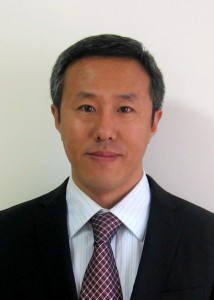 Dr. Zhang Liguo is a post-doctoral researcher in the Faculty of Law, University of Helsinki, Finland, specialising in EU and Chinese intellectual property (IP) law. He is also a researcher in the ‘Legal Transplant for Innovation and Creativity – A Sino-Finnish Comparative Study on the Governance of Intellectual Property Rights’ project, funded by the Academy of Finland and involving collaborative research in academic institutes in China, Finland and the US.
Dr. Zhang Liguo is a post-doctoral researcher in the Faculty of Law, University of Helsinki, Finland, specialising in EU and Chinese intellectual property (IP) law. He is also a researcher in the ‘Legal Transplant for Innovation and Creativity – A Sino-Finnish Comparative Study on the Governance of Intellectual Property Rights’ project, funded by the Academy of Finland and involving collaborative research in academic institutes in China, Finland and the US.
Dr. Zhang’s contribution will help shed light on how IP laws promote innovation and creativity. ‘It is generally recognized that innovation is crucial for long-term economic growth’, Zhang says. ‘My research interests focus on how intellectual property law can best promote innovation.’ According to Zhang, Chinese IP law has been incorporating norms in international circulation with the aim of being compatible with international standards. ‘At the same time’, Zhang says, ‘research and experience has shown that legal transplants can create tensions in legal systems. Therefore it’s important that IP transplants are analyzed critically in their social, economic, cultural and historical contexts from the perspective of comparative law.’
Dr. Zhang is looking into IP legal reform in China in light of its national IP rights strategy, published in 2008, and comparing this with the IP legal reforms contained in the EU IP strategy released in 2011. Specifically, he is assessing the legal and practical effects of enforcement measures in EU law and Chinese Law.
Comparing IP law between China and Finland is a task for which Dr. Zhang is ideally suited. Prior to his current role, Zhang completed his LL.D at the University of Helsinki while working as a researcher at the IPR University Center. His research work centered on patent licensing in the EU. His publications have looked at various aspects of patent licensing, standardization, innovation policy, and competition law in the EU, and have specifically focused on the ICT industry. In addition, before coming to Finland Zhang completed an LL.M. in intellectual property law and competition law at the Munich Intellectual Property Law Center. In China, Zhang was a lecturer in intellectual property law and he also published on commercial law in a range of Chinese academic journals.
Dr. Zhang has come to realize that legal comparison is of critical practical relevance for China. ‘China’s contemporary legal system is still developing and evolving. Given China is trying to improve its laws and their administration and enforcement, it makes sense to look at models worldwide.’ And because of rule of law in Finland, including from the perspective of IP, Dr. Zhang believes there is great value in looking at intersections between Finish and Chinese law.
For Dr. Zhang, there is an important role to play for the Finnish China Law Center in sharing legal information and experience between Finland and China. ‘When I first came to Finland in 2007, there were very few Chinese law students and legal scholars’. Since then, he says, the situation has changed. ‘There is now a lot more cooperation and collaboration between China and Finland, which is helping foster understanding between the two legal systems. The Finnish China Law Center, through its research initiatives, collaborative work and strong people-to-people links, is critical in developing a long-term relationship with China from which Finland is already benefitting’. Zhang says that China is handling a diversity of challenges and opportunities in its quickly evolving legal system. ‘This process may lead to many lessons and experience of interest to legal researchers both in China and Finland.’ Both countries face common challenges, Zhang says, such as environmental protection, social welfare, and promoting innovation and economic growth. ‘These can be looked at from legal perspectives and research cooperation may help to find solutions.’ More broadly, Zhang says that legal collaboration is helping build enduring business, trade and political links between the two countries.
Dr. Zhang’s research keeps him busy but he still finds time to indulge one of his passions, yoga. His other hobby, hiking, also gives him a break from debating the finer points of comparative IP law and policy.
Author: Stuart Mooney

